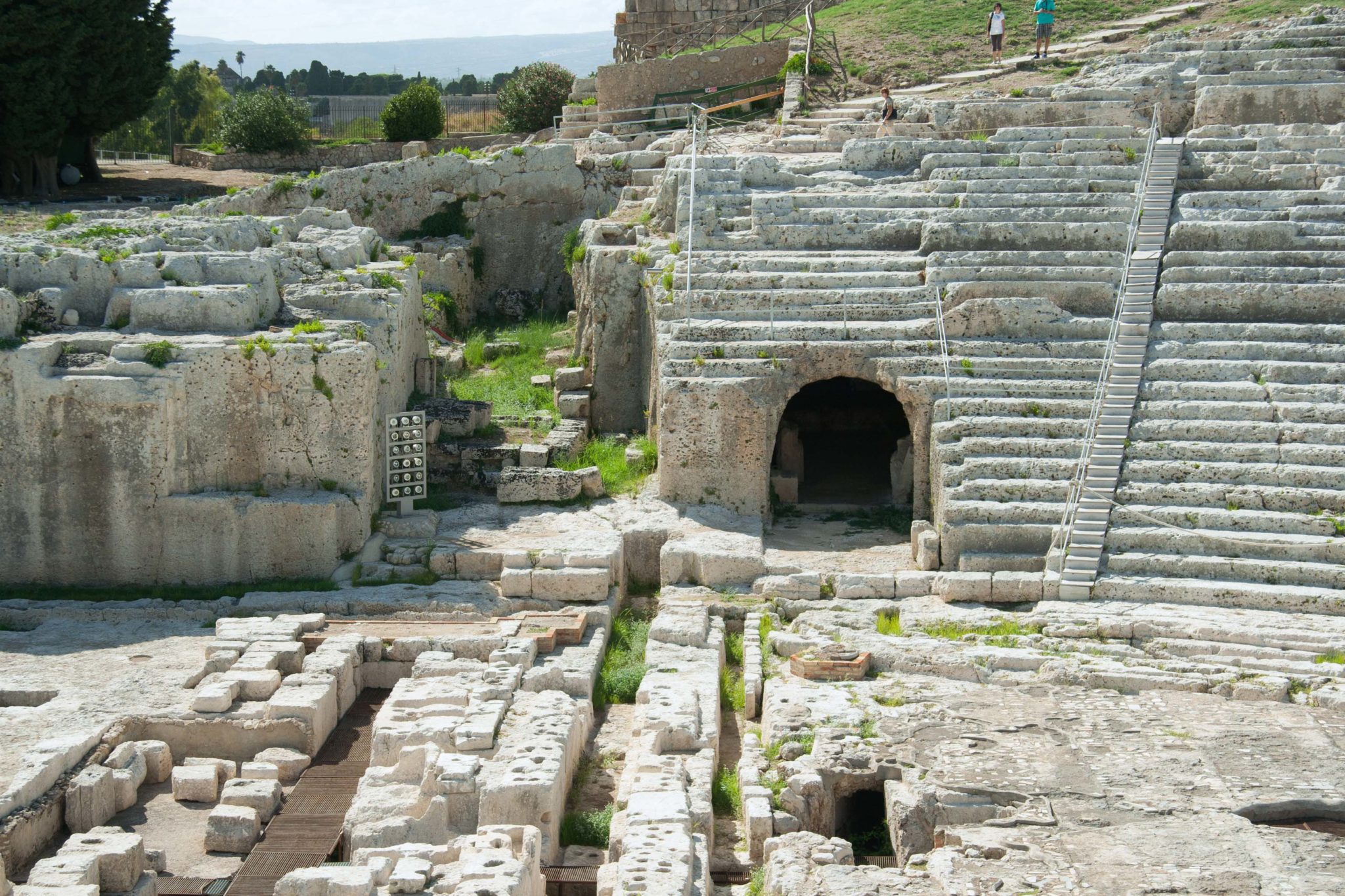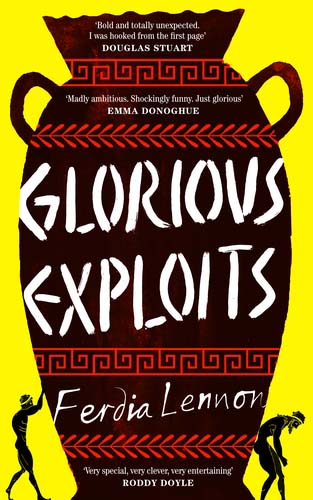- Opinion
- 07 Mar 24
Ferdia Lennon: "Glorious Exploits is about that compulsion we have towards stories, and more specifically, the dark stories..."

Ferdia Lennon discusses his exciting debut novel Glorious Exploits, in which a classical tale is reimagined with a couple of modern Dubs at its centre.
When we talk about Greek classics, we generally think of lofty Oxbridge hallways, populated with white men in impeccable tweed suits debating the merits of Plato and Aristotle.
So you can imagine my surprise when I read Ferdia Lennon’s Glorious Exploits – a book that starts with a failed invasion of Sicily in 412 BC during the Peloponnesian War – and discovered the spirit of Dublin running riot, in the form of the swaggering Lampo and his fellow unemployed clay-potter Gelon. The scheming duo, who might accurately be described as gurriers, decide to pay a visit to the thousands of Athenian prisoners of war, who are held – starving, dejected and hanging on by the slimmest of threads – in the quarries of Syracuse.
The two lads discover that the prisoners will, in desperation, recite lines from the plays of Euripides in return for scraps of bread and a scattering of olives. Lampos and Gelon decide to turn the prisoners of war into thespians and put on an ambitious production of Medea in the quarry. This unique piece of historical fiction is replete with contemporary Dublin vocab such as “fella”, “ma”, “cracker” and “your one”.
A very exciting, deliciously dark comedy, Glorious Exploits is a hugely ambitious debut from Dubliner Ferdia Lennon. I ask what led to the bold stylistic decision to use Dublin slang?
“I felt it would jolt the reader and make it different,” he says. “The convention is usually very much as if the people in these stories have just stepped out of Eton. So, I knew if I did this, people would go, ‘That’s kind of improbable’. But why is it any more improbable than having them sound like they’re from Oxford?”
He also feels that the stylistic choice makes historical sense.
“The Greek world was very hybrid,” Lennon explains. “Sicily was an island colonised by mainland Greece a few hundred years before the novel is set. So I thought, well if I want to convey this varied culture and society, a metaphor of Ireland could work. Hiberno-English is a little different, because you have that native language playing underneath. You probably had something similar in Syracuse, in Sicily.”

As we chat, Lennon is sitting in a room crammed with books. The author wouldn’t look out of place in a Waugh novel but is Dublin through and through.
“I’m half-Irish and my father is Libyan,” he says, “but I was very much raised in Dublin on the Irish side.”
What got him interested in Greek mythology?
“On a basic level they’re brilliant stories,” he enthuses. “They’ve got a lot of emotional and psychological heft. But Glorious Exploits operates on two levels. First off, it’s humorous and comedic. But on another level, there’s a kind of darkness that runs through it. There’s themes of war, and of narrative and storytelling. Glorious Exploits is about that compulsion we have towards stories, and more specifically, the dark stories, stories of tragedy, even in the most dire of circumstances.”
The circumstances are indeed dire when the novel kicks off, with Lennon drawing inspiration from historian, philosopher and biographer Plutarch.
“The basis of this story was from a line in Plutarch,” he confirms, “where he speaks about how some of the captive Athenians actually survived. The Sicilians were so obsessed with Euripides that they would give them extra food in exchange for quotes. This is in that historical record: the idea of art as literally a lifeline. On an individual level, art can just make our lives richer. But then as a community, it can definitely be something that brings people together.”
Was it hard to make the imaginative leap fom now to then?
“The human brain hasn’t really changed in hundreds of thousands of years,” says Ferdia, “but the culture changes. So I find historical fiction is almost like speculative fiction. You can see an experiment where we have the data of how people behaved when there’s a completely different system. Human nature being what it is, these things are going to happen again and again.
“The invasion of Sicily was posited as humanitarian: ‘We are going in to help these people’. Whereas, behind the scenes, they essentially wanted to invade and control this area. This is something that we see again and again.”
Indeed, with major wars raging in Ukraine and Gaza, it’s easy to see the parallels in Glorious Exploits. Although Lennon thinks there are comparisons to be drawn between classical antiquity and current times, he doesn’t think we should be looking to the past for our solutions.
“What can we learn from antiquity?” he muses. “I mean, what can we not do, really. Hopefully not enslave half the population. I don’t know if we can look too much to the Ancient Greeks as our guide posts.”

I’ve been sitting on one frivolous question – how often does Ferdia Lennon think about the Roman Empire? He laughs and then stares at me blankly. Clearly, Lennon does not spend as much time doomscrolling as I do. On TikTok, no less, you will currently find a plethora of videos of women asking their boyfriends, friends, brothers and fathers how often they think of the Roman Empire. They believe, apparently, that the subject is an ever-present obsession in the male psyche.
“How often do I think of the Roman Empire?” he politely responds. “I’m not as interested in ancient Rome.”
In general, he is less than enthusiastic about the effect of the internet on our attention spans.
“With the clicking culture,” he observes, “there is a tendency to move along the surface, jumping like skimming stones.”
That said, he is by no means a snob. Clearly, he cherishes books, academia and the education he’s obtained – a UCD degree in Classics and History, and an MA in prose fiction from the University of East Anglia. But he still sees pure entertainment as being of high value.
“If you think of these old plays, these tragedies, they were mass entertainment,” he refects. “Now we think, ‘Oh, I’m going to a Greek tragedy, I’m so sophisticated’. But back then, it was like, ‘Oh, long day at work, let’s go see a play’. I think if you are into the classics, you will recognise certain things in the book, but it’s written in such a way where you don’t need to be familiar with antiquity.”
That’s undeniably true. Glorious Exploits is an earthy tragicomedy, reading like the lovechild of Roddy Doyle and Percy Jackson. It’s warm, fierce and damn entertaining.
• Glorious Exploits is out now.









